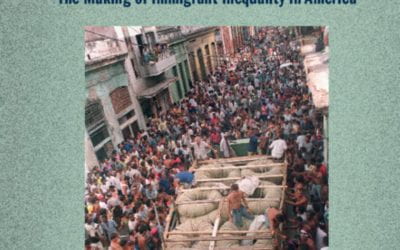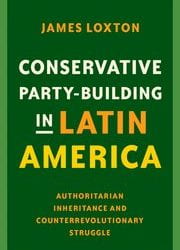COVID Expat
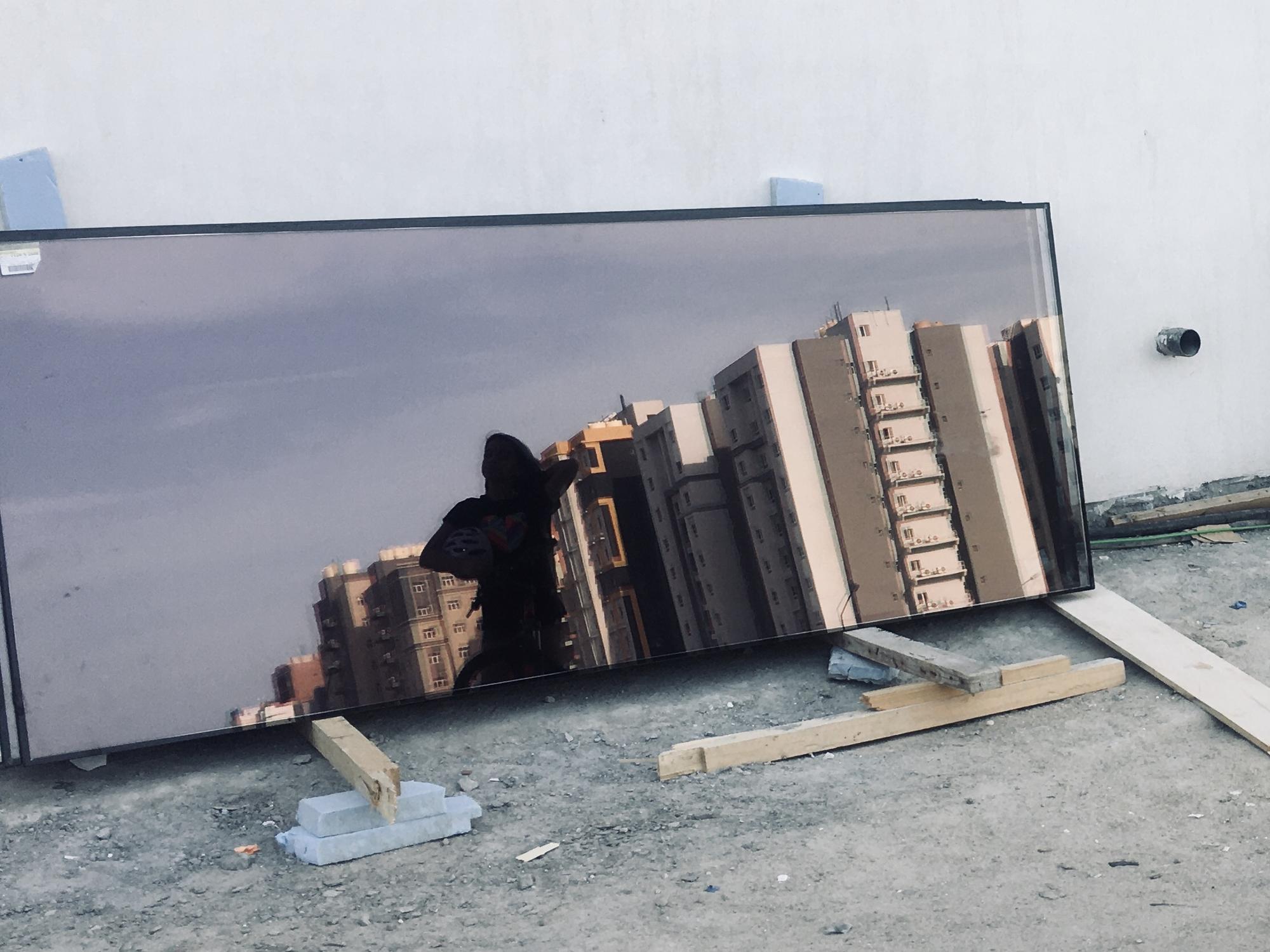
The phone rang at 7 a.m. I wondered why on earth my husband was calling me so early from downstairs on a vacation day. It was February 26 and we were enjoying a week’s holiday in a neighboring country from our expatriate home in the Persian Gulf. I answered in monosyllables so as not to wake my daughter, sleeping at my side. My husband’s voice sounded anxious although he was clearly trying to sound calm: We had to leave the hotel in an hour. Still half asleep I didn’t understand what was going on, so I just followed his plan like a robot: Go down to eat breakfast and then we would all come back to the room to pack.
I woke my daughter, trying to hide my anxiety. In less than five minutes we were ready. But overnight the hotel had become another place. The tourists, whom we had seen so relaxed in the days before, were now eating breakfast in silence, as though it were a chore, their already packed bags at their sides. The hotel staff went around checking everything like flight attendants preparing for departure.
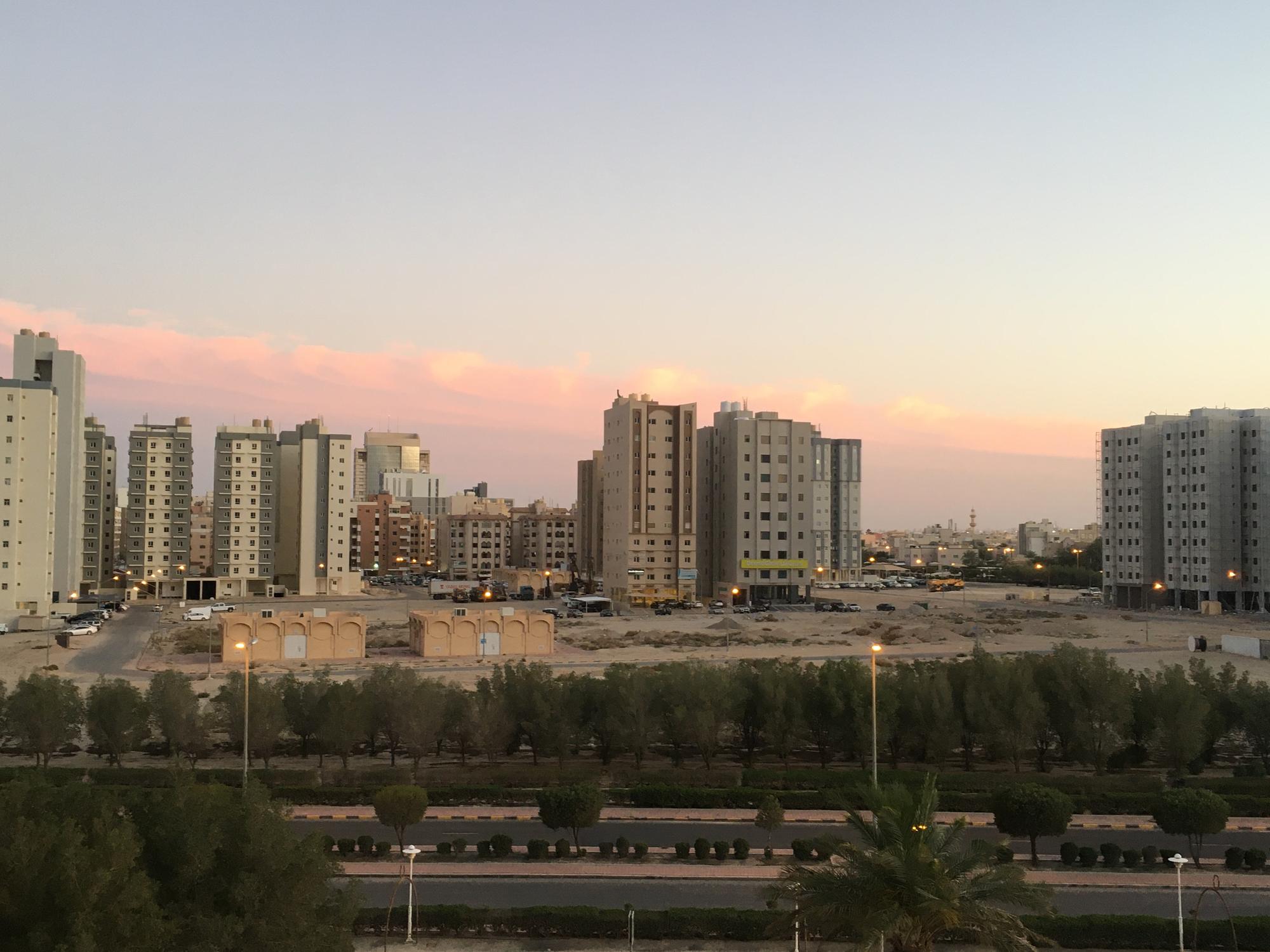
While we ate a little fruit, my husband brought me up to speed. He had awakened to find a letter in the door of our room ordering us to leave the hotel at 8 in the morning. Confused, he went down to the lobby to ask if there had been an error with his reservation. He found a long line of equally perplexed guests who were being attended to by two even more confused clerks. The explanation they were given—a bit unlikely even in an authoritarian regime—was that the hotel had to be emptied as soon as possible to accommodate some VIP guests. The rumor circulating was something else: they had relocated us to prepare the place as a quarantine area for citizens who were returning that day from countries infected with COVID-19, that same virus that just two months ago we thought of as a disaster in some remote city in the Far East.
We ate with little appetite and told our daughter that we were about to have an adventure in a new hotel. While we tried to pack our vacation clothes in the small suitcase with shaking fingers, she made plans for another day in the sun, and the front desk kept calling us to hurry. As we left our room, two hotel guards escorted us and another tourist couple to the elevator. When we got to the lobby to await the transfer to another hotel, we saw two police cars waiting at the door of the hotel along with four officials talking on hand-held radios. We had entered an unknown dimension, and little did we dream that this was going to be the new normal over the coming weeks.
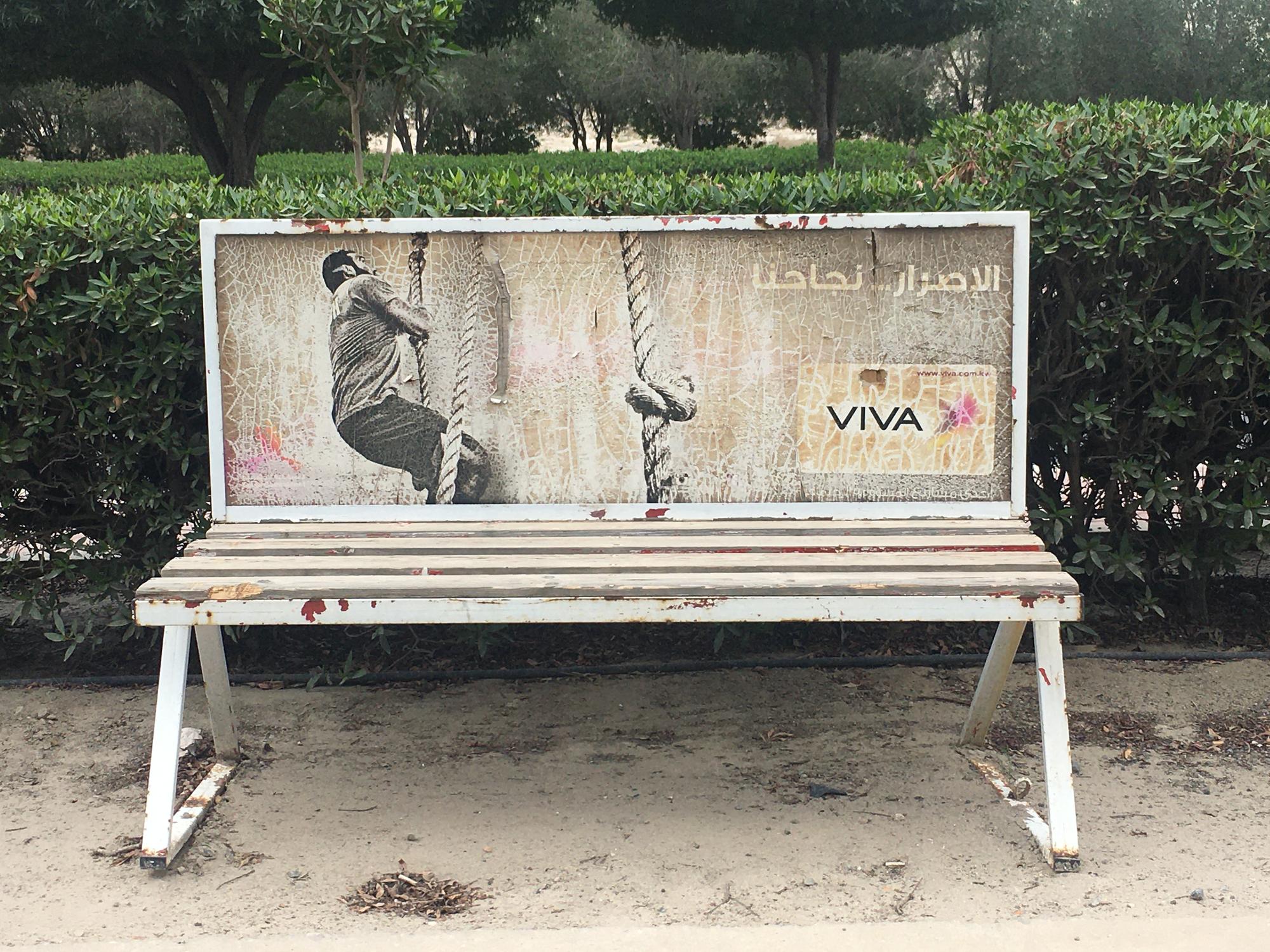
Our vacation in this tiny Persian Gulf country would end the next day and we would have to make a decision. In addition to the forced exit from the hotel, we got further news: My daughter’s school was closed until further notice and our jobs had both announced a two-week extension to our vacations. What to do now? Stay a few more days in the new hotel while the situation returned to normal? Go back to our own country, Colombia, a 20-hour flight away? Take refuge in Europe—a midpoint between the Middle East and South America—for at least a week to assess the extent of the situation? Go back to our house in the other Persian Gulf country where we were living and working? In the end, we opted for the latter, which seemed the easiest and least radical step.
***
We arrived at what has been our home for a couple of years with a sense of normality that began to slowly unravel. That Sunday, March 1, was the start of our gradual confinement. My husband decided to go to his office for a few hours each day, while my daughter and I did home schooling with another little girl who lived near us. We enjoyed the unexpected pause in our daily routine and in less than a week we had adapted to the new rhythm. We incorporated yoga practice, music making and reading all the books that had been waiting for weeks on our nightstands. We took up online activities we’d never had the time for before. During our downtime we were able to rekindle relations with friends with whom we hadn’t been in touch with during the busy semester and we met up with people we hadn’t seen for a decade via Zoom. It all seemed like a good lesson in living, to learn to carry on with discipline and a positive outlook.
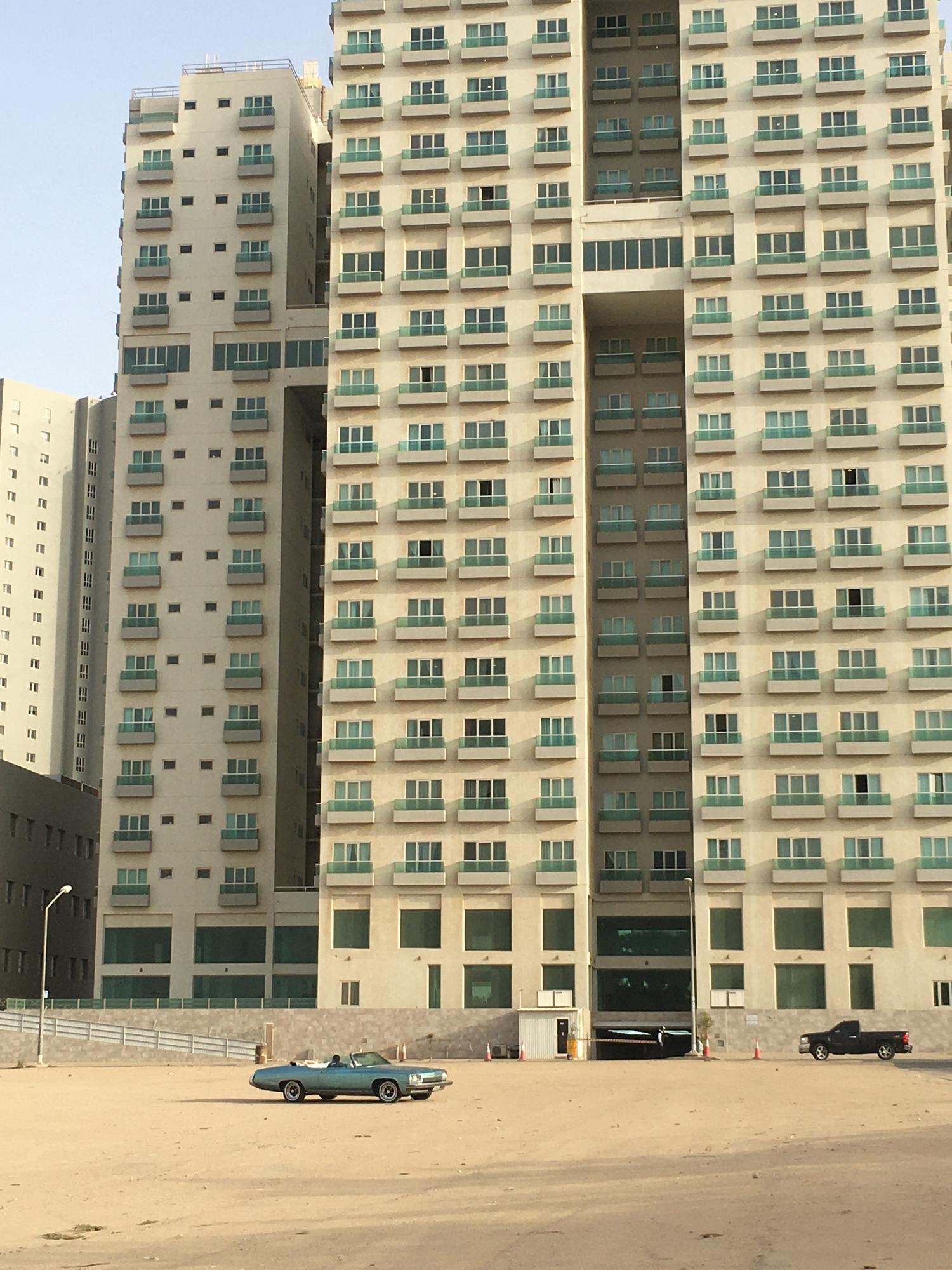
The days of false calm didn’t last long. In less than two weeks we understood, finally, the magnitude of the calamity that had befallen us. It wasn’t just a problem of the people most at risk, nor was it so far away, nor would it vanish in the heat. No. The apocalyptic images began knocking at our gate; they were just next door in our neighbor, Iran. The celebrations of Nouruz, the Persian New Year, in addition to an election that had been approved despite the risk, caused the incidence of the disease to skyrocket in Iran and now it had spread throughout the Gulf. Countermeasures soon began to escalate.
This is not a place known for transparent transmission of information and everyone sought facts wherever they could. The news reached us, it changed, it disappeared. And this only heightened the anxiety which was already high enough. The news came in bits and pieces. First, in rumors on social media, then in contradictory versions that were then corrected in the few English-language newspapers in the country; and finally in the Instagram pages of some of the embassies. From our home country came a soulless e-mail that neither informed nor consoled us. We got more support from the online Spanish-speaking expatriate community that was afire with memes, jokes, prayer chains and even strident debates. That source became the companion of many.
Around mid-March an order came to shut down all air travel until further notice. That was the second time in my life that I had had to live through this kind of thing. The first was almost 20 years ago when I was a student in Boston. Logan Airport was closed as a result of the attack on the Twin Towers. The sensation of strangling is always disturbing: two iron gates close off the skies and you are completely trapped. Then came messages about massive and obligatory medical examinations, under penalty of fines and imprisonment, of all of those who had arrived from Egypt, England, Iran and so forth, for a week that seemed like a century. The rest of the people were to remain confined in their homes, a restriction that was only lifted to get provisions in the supermarkets and that carried the fear of future shortages, since this is a country that subsists almost entirely on imported goods. By the end of the month a partial curfew was decreed from 5 p.m. to 6 a.m. The city was completely paralyzed and we were in a state of panic.
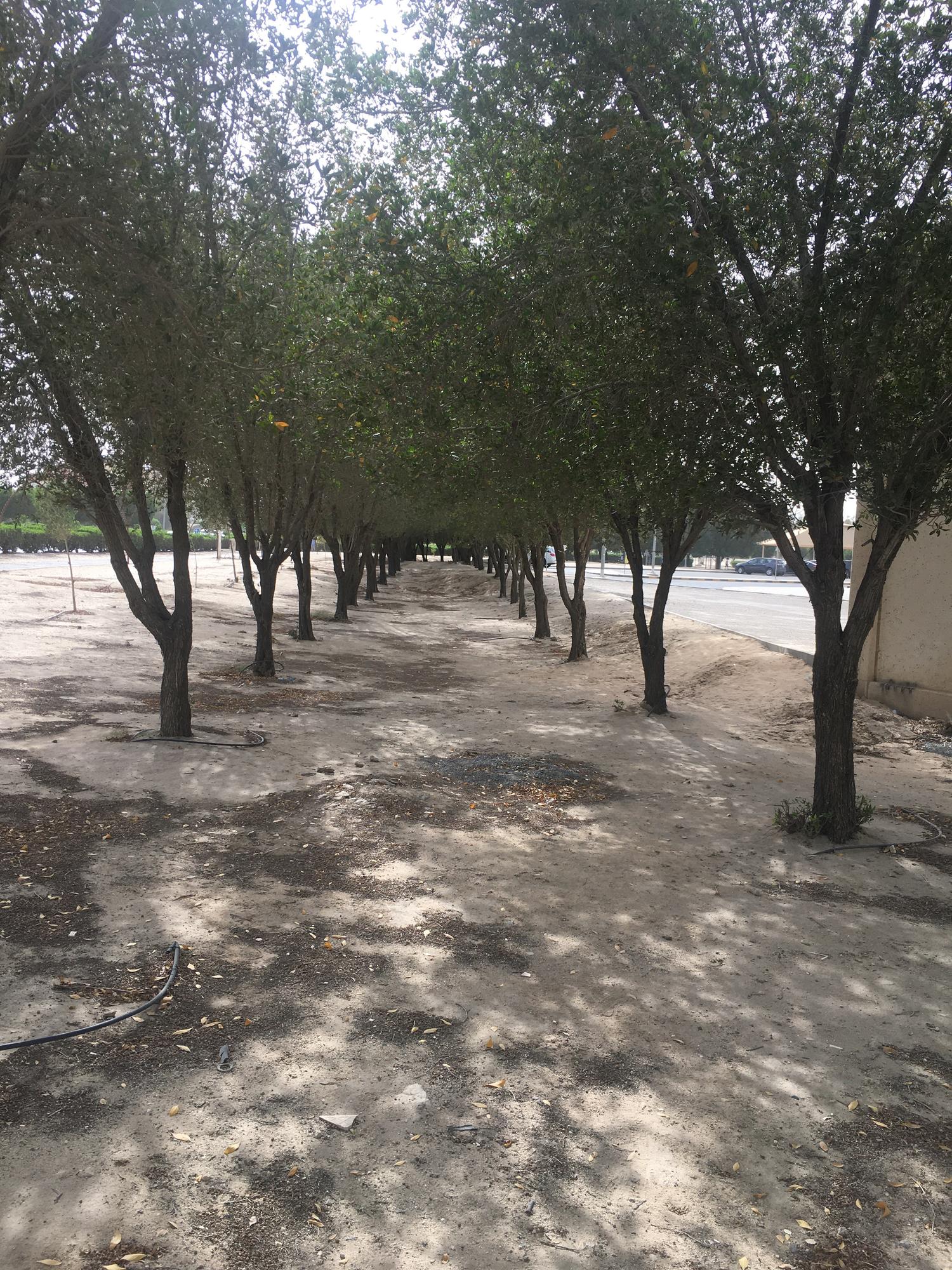
On top of all the worry that the disease itself brought, there was yet more to come: The virus was following its dizzying course westward. After a devastating swing through Europe, it was reaching Latin America, where our families lived. By the end of March, Colombia was in a total quarantine without air travel. We were living in the space between the news here and the news there, with the feeling that we were trapped in limbo. With no air travel in either place, there was no way out. We drowned in the silence of the air above us. Our loved ones were an ocean away while we were feeling like guests—already less welcome—in a country that would never be ours.
Living through this crisis as an expatriate, that horrible word that makes you an orphan, is a whole other story. In the Gulf there are no immigrants: we’re all in transit, whether highly trained professionals or construction workers. Each visa is connected to your job and sometimes it feels like we’re all in a huge labor camp where you come to work and to sleep. There is no belonging here; we’re all replaceable and we know it. During normal times, the transitory nature of our lives is bothersome but can be buried in the daily grind. In times of crisis, it’s frightening. Just reading the news makes you feel vulnerable. The expat and the nationals are treated as two different categories of human beings. And the rules, of course, are different for both groups. A perhaps banal example illustrates it well: As a result of this crisis, entrance to the cooperatives, the government-owned stores, is now regulated. If you’re an expat, you have to wait in line; if you’re a national citizen, you don’t. This makes you wonder, will we have the right to food? Will they expel us if we get the virus? Will there be respirators for us?
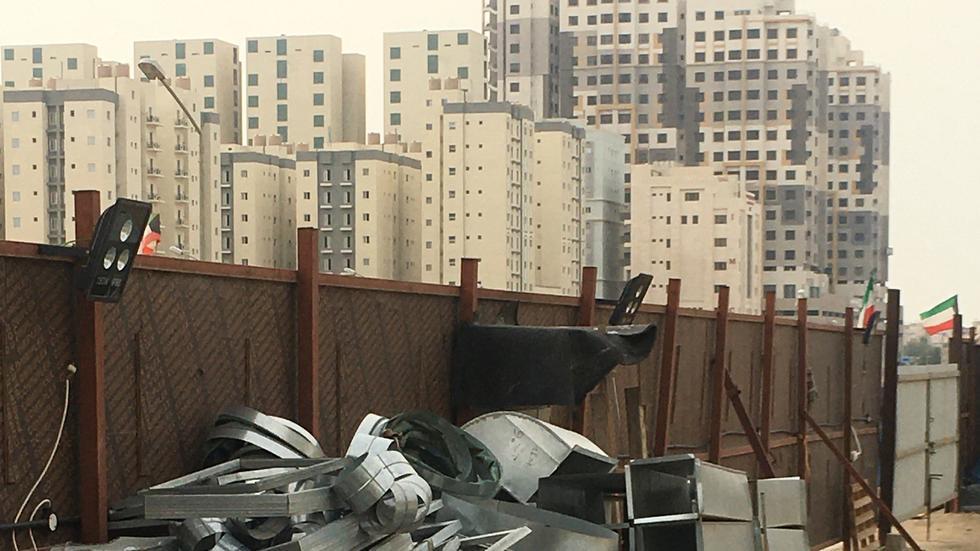
I think about the other expats, the hundreds of thousands that have to share their space with eight or ten other people, those that can’t stop working because the country would fall apart, who deliver goods to the homes of others, or collect the garbage, those who aren’t even expats but illegals who scrounge work while they elude the police, victims of an unjust system and the trafficking of visas, those who go along with an amnesty that lets them be deported without paying fines. I see how buildings are shut down because there’s been an outbreak of virus there, how overnight whole neighborhoods are blocked off with wire fences and police cars, leaving them at the mercy of what the government or charities can provide. We all see it. We know they are there and we can do nothing, except perhaps donate some food or write an anonymous complaint to a magazine in a distant country. I’ve come to understand that there is something worse about being an expat: it’s to have no voice at all. You are the other, the lesser one, the one who has lost dignity.
***
COVID-19 has revealed the very obvious imperfections of the world we have built. And not just in these authoritarian regimes, as we prefer to think, or in the developing countries in Latin America, with its painful inequities. I’m bombarded with images of the refugee camps in France and of the boats of exiles returning to Africa as they depart from a hostile Spain, or from my undocumented cousin in New York, hidden, fearful, and unable to work for weeks. My concerns are minuscule compared to the human drama that this pandemic has revealed. The problem isn’t just being stuck at home from fear of the disease. The horrible pictures of the world we have made both here and there won’t let me sleep. I hope to awake from the nightmare in a better world, in which we don’t have to support ourselves through the charity of others, in which equality is the norm and solidarity is the religion. Then it will all have been worth it, for we will have overcome the disease.
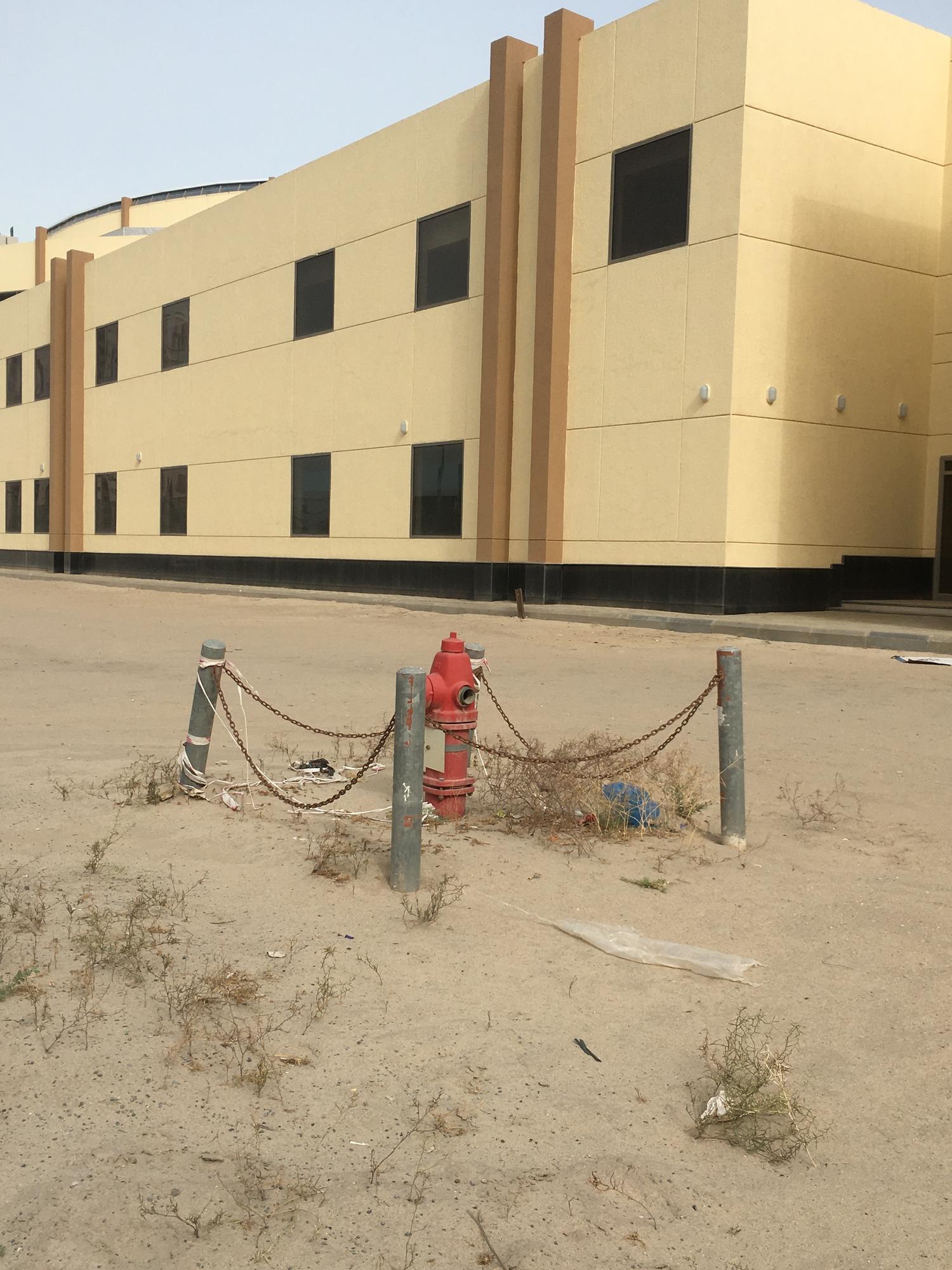
De expat en los tiempos de COVID
Por una expat en el Golfo
A las 7 a.m. sonó el teléfono. Era inusual que mi esposo me llamara a esa hora en un día de vacaciones. Era el 26 de febrero y gozábamos de una semana de descanso en un país vecino en el Golfo Pérsico. Contesté con monosilabos para no despertar a mi hija que dormía a mi lado. Desde el lobby del hotel, la voz de mi esposo sonaba agitada por mas que tratara de parecer tranquilo: Teníamos que desalojar el hotel en una hora. Todavía entre sueños, no entendí lo que pasaba y me limité a seguir el plan que él ya había pensado, como una autómata: Bajar a desayunar y luego subir todos juntos a la habitación a empacar.
Desperté a mi hija ocultando mi desasosiego y en menos de cinco minutos estábamos listas, pero el hotel parecía otro con solo el pasar de una noche. Los turistas que habíamos visto días antes relajados, estaban ahora desayunando en silencio como haciendo un deber. Las maletas hechas esperaban a su lado para salir. Los empleados pasaban revisándolo todo como los asistentes de vuelo de un avión que se preparaba a despegar.

Mientras nos servíamos algo de fruta, mi esposo me puso al día: había encontrado una carta en la puerta de la habitación con la orden de salir a las 8 de la mañana. Confundido, bajó a la recepción a preguntar si había un error en su reserva y se encontró con una fila larga de gente atendida por dos empleados mas nerviosos que los mismos huéspedes. La explicación que les daban, un tanto inverosímil inclusive en estos regímenes autocráticos, era que por orden del gobierno necesitaban desocupar el hotel lo antes posible para unos clientes VIP. El rumor que se oía era otro: necesitaban desolojarnos para adecuarlo como zona de cuarentena para los ciudadanos que llegaban ese mismo día de otros países infectados con COVID-19, ese virus que sonaba remoto hacía solo dos meses atrás, como una catástrofe en una ciudad desconocida del lejano Oriente.
Comimos algo sin apetito, y le dijimos a nuestra hija que tendríamos una aventura, un cambio de hotel. Mientras tratábamos de empacar la ropa de verano en la pequeña maleta con manos temblorosas, ella hacía planes para otro día de sol y recibíamos constantes llamadas de la recepción apurándonos. Al salir de la habitación dos guardias del hotel nos escoltaron, junto a otro par de turistas mas, al ascensor. Al bajar al lobby a esperar el transaldo hacia otro hotel, vimos dos carros de polícia esperando en la puerta, con cuatro oficiales hablando por sus walkie-talkies. Estábamos en una dimensión desconocida, y poco nos imaginábamos en esos momentos que esa sería la nueva normalidad en las próximas semanas.

Al día siguiente se acababan nuestras vacaciones en ese minúsculo país del Golfo Pérsico y entonces tendríamos que tomar una decisión. Sumado al desalojo habíamos recibido otras noticias: el colegio de mi hija estaba cancelado hasta nueva orden y en nuestro trabajo habían anunciado dos semanas extras de vacaciones. ¿Qué hacer ahora? ¿Quedarnos unos días mas en el hotel mientras se normalizaba la situación? ¿Regresar a Colombia, nuestro país de origen, que estaba a 20 horas de vuelo? ¿Refugiarnos en Europa, punto intermedio entre el Medio Oriente y Suramérica, por lo menos por una semana hasta entender el alcance de lo que pasaba? /Volver a nuestra casa en otro país cercano del Golfo donde estaba nuestro trabajo? Optamos por lo último que parecía lo mas fácil, lo menos radical. Poco sabíamos en ese momento que nuestro mundo ya no sería el mismo.
***
Llegamos a la que es ahora nuestra casa desde hace un par de años, con una sensación de normalidad que se fue desmoranando lentamente. Ese domingo, primero de marzo comenzó nuestro gradual confinamiento. Mi esposo decidió ir a la oficina un par de horas cada día mientras mi hija y yo hacíamos colegio en casa con otra niña vecina. Disfrutábamos de la pausa inesperada en nuestra rutina diaria y en menos de una semana ya estábamos adaptados a este nuevo ritmo. Habíamos incorporado a nuestros días prácticas de yoga, sesiones de música, lecturas que nos habían esperado por meses en la mesa de noche y clases en línea de ese pasatiempo que nunca habíamos tenido tiempo de empezar. En las horas muertas podíamos comunicarnos con amigos y amigas que no llamábamos por los agites del semestre; y de un momento a otro nos encontramos en Zoom con personas que hacía una década no veíamos. Todo parecía un buen aprendizaje que se llevaría con disciplina y actitud positiva.

Poco duraron esos días de falsa calma. En menos de dos semanas, entendimos, por fin, la magnitud de la calamidad que se nos había venido encima. No era un problema solo para las personas en riesgo, ni estaba lejos, ni se desaparecería con el calor. No. Las imágenes apocalípticas empezaron a tocarnos la puerta, estaban justo al lado en nuestro vecino Irán. Las celebraciones de Nouruz, el año nuevo persa, mas unas elecciones que habían aprobado a sabiendas del riesgo, dispararon el contagio por el país y ahora el virus se dispersaba por todo el Golfo. Pronto las medidas comenzaron a escalar.
No es esta una zona que se caracterice por un manejo transparente de la información y cada cual buscaba datos donde pudiera. Las noticias llegaban, cambiaban, desaparecían y esto aumentaba la ansiedad en un momento ya de alta tensión. Cada noticia iba llegando en forma fragmentada. Primero, como un rumor en las redes sociales, después en versiones que se contradecían y se autocorregían en los pocos periódicos en lengua inglesa del país; y finalmente en las páginas de algunas embajadas en Instagram. De nuestro país llegó un desangelado mensaje electrónico que no sirvió ni de información ni de consuelo. Mas apoyo se recibía de los grupos en línea de expats hispanoahablantes. Estaban a reventar entre memes, chistes, cadenas de oración, e incluso fuertes discusiones, y se convertían así en compañía para muchos.
Para mediados de marzo se anunció el cierre del espacio aéreo hasta nueva orden. Era la segunda vez en mi vida que tenía que vivir algo así. La primera fue hace casi 20 años como estudiante en Boston cuando cerraron Logan como consecuencia del atentado de las Torres Gemelas. La sensación de asfixia es siempre igualmente perturbadora: dos puertas de hierro cierran el cielo y estás totalmente atrapado. Luego, llegaron los mensajes sobre exámenes medicos masivos y obligatorios, bajo pena de multa y cárcel, a quienes hubieran llegado al país en días anteriores de Egipto, de Inglaterra, de Irán y así sucesivamente a lo largo de una semana que pareció un siglo. El resto debía esperar confinado en casa, una orden que solo rompimos cuando nos autorizaron a aprovisionarnos en los supermercados, con el temor de un desabastecimento futuro, al ser este un país que subsiste casi totalmente de la importación de alimentos. Para el final del mes, se decretaba un toque de queda parcial de cinco de la tarde a seis de la mañana. La ciudad estaba completamente paralizada y nosotros en pánico.

A esta zozobra que se le sumaba al miedo en sí de la enfermedad se le iba a añadir otro mas: El virus seguía su recorrido vertigoso hacia occidente. Después de un paso devastador por Europa llegaba a América Latina donde estaba nuestra familia. Para finales de marzo Colombia estaba en lo que llamaron una cuarentena por la vida, con confinamiento total y cielos cerrados. Vivíamos ahora divididos entre las noticias de acá y las de allá, y con la sensación de habernos quedado atrapados en el limbo. Con ambos espacios aéreos cerrados no había escapatoria. Nos ahogaba el silencio del cielo. Nuestros seres queridos quedaban a un océano de distancia mientras nosotros nos sentíamos como huéspedes, ya menos deseados, en un país que nunca sería el nuestro.
Y es que vivir la crisis cuando eres expatriado, esa horrible palabra que te deja huérfano, es otra historia. En el Golfo no hay inmigrantes: Todos estamos en tránsito, ya seas un trabajador calificado o un obrero de la construcción. Cada visa está ligada al trabajo y a veces te sientes como en un enorme campamento donde se viene a trabajar y a dormir. Acá no se puede pertenecer, somos todos precindibles y lo sabemos. En tiempos normales, esta noción de transitoriedad, si bien molesta, se olvida con las ocupaciones diarias, pero en tiempos de crisis asusta. Solo leer las noticias te hace sentir vulnerable: se habla del expat y del ciudadano como dos categorías de seres humanos. Y las reglas, por supuesto, son diferentes para los dos. Un ejemplo quizás banal lo ilustra mejor: a raíz de esta crisis se limitó la entrada de personas a las cooperativas, los supermercados del estado. Tienes que esperar en fila tu turno si eres expat, si eres nacional, no. Y entonces te empiezas a preguntar cosas tal vez absurdas: ¿tendremos derecho a comida? ¿Nos expulsarán si nos da el virus? ¿Habrá respiradores para nosotros?
 Comienzo entonces a pensar en los otros expats: Los cientos de miles que tienen que compartir su cuarto con ocho o diez personas mas; los que no pueden dejar de trabajar porque se paralizaría el país y siguen llevando domicilios o recogiendo las basuras; los que ni siquiera llegan a categoría de expat y que están ilegales rebuscando el trabajo mientras huyen de la policía, víctimas de un sistema injusto y del tráfico de visas; los que se adhieren a una amnistía para ser deportados sin pagar multas. Veo como cierran sus edificios porque hay un brote del virus allí, como de la noche a la mañana acuartelan barrios enteros con barricadas de alambre y carros de policía quedando a merced de lo que el gobierno o las caridades puedan darles. Todos los vemos, sabemos que están allí y no podemos hacer nada, quizás donar un mercado o escribir una queja anónima en una revista de un país lejano. Entiendo entonces que hay una cosa peor de ser expat: es que te quita la voz. Eres el Otro, el de menos, y pierdes la dignidad.
Comienzo entonces a pensar en los otros expats: Los cientos de miles que tienen que compartir su cuarto con ocho o diez personas mas; los que no pueden dejar de trabajar porque se paralizaría el país y siguen llevando domicilios o recogiendo las basuras; los que ni siquiera llegan a categoría de expat y que están ilegales rebuscando el trabajo mientras huyen de la policía, víctimas de un sistema injusto y del tráfico de visas; los que se adhieren a una amnistía para ser deportados sin pagar multas. Veo como cierran sus edificios porque hay un brote del virus allí, como de la noche a la mañana acuartelan barrios enteros con barricadas de alambre y carros de policía quedando a merced de lo que el gobierno o las caridades puedan darles. Todos los vemos, sabemos que están allí y no podemos hacer nada, quizás donar un mercado o escribir una queja anónima en una revista de un país lejano. Entiendo entonces que hay una cosa peor de ser expat: es que te quita la voz. Eres el Otro, el de menos, y pierdes la dignidad.
***
El COVID-19 ha develado las mas obvias imperfecciones del mundo que hemos construido. No solo en estos regímenes autocráticos como todos quisiéramos pensar, o en los países en desarrollo de América Latina con sus dolorosas inequidades. Me llegan las imágenes del campamento de refugiados en Francia, o de las pateras que van de vuelta a Africa dejando a una España hostil, o las de mi prima indocumentada en Nueva York, escondida, con miedo y sin poder trabajar por semanas. Mis preocupaciones son minúsculas ante el drama humano que ha mostrado esta pandemia. No es estar en casa el problema o el miedo al contagio. Las horribles imágenes del mundo que hemos construido acá y allá no me dejan dormir. Espero despertarme de esta pesadilla en un mundo mejor, en el que no tengamos que sostenernos de la caridad, en el que la equidad sea la norma y la solidaridad la religión. Entonces habrá valido la pena, habremos superado a la enfermedad.
A expat in the Gulf is a pseudonym for a Colombian expatriate living in the Persian Gulf with her husband and daughter. This article was translated into English by Lois Grossman.
Una expat en el Golfo es un pseudonimo para una colombiana que vive expatriada en un país del Golfo Pérsico con su esposo e hija.
Related Articles
A Review of Cuban Privilege: the Making of Immigrant Inequality in America by Susan Eckstein
If anyone had any doubts that Cubans were treated exceptionally well by the United States immigration and welfare authorities, relative to other immigrant groups and even relative to …
A Review of Conservative Party-Building in Latin America: Authoritarian Inheritance and Counterrevolutionary Struggle
James Loxton’s Conservative Party-Building in Latin America: Authoritarian Inheritance and Counterrevolutionary Struggle makes very important, original contributions to the study of…
Endnote – Eyes on COVID-19
Endnote A Continuing SagaIt’s not over yet. Covid (we’ll drop the -19 going forward) is still causing deaths and serious illness in Latin America and the Caribbean, as elsewhere. One out of every four Covid deaths in the world has taken place in Latin America,...

